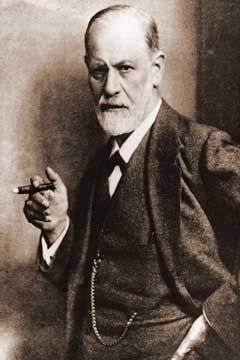Herzog, J. M. (1984). Fathers and young children: Fathering daughters and fathering sons. In Frontiers of infant psychiatry. Vol. 2, cd.J. D. Call, E. Galenson, and R. L. Tyson. New York: Basic Books, pp. 335-342.
Hotter, W. (1949). Mouth, hand and ego integration. Psychoanal. Study Child, 3/4:49-56.
Hoffer, W. (1950a). Oral aggressiveness and ego development. Int. J. Psychoanal., 31:156-160.
Hoffer, W. (1950b). The development of the body ego. Psychoanal. Study Child, 5:18-24.
Hoffer, W. (1952). The mutual influences in the development of Ego and Id: Earliest stages. Psychoanal. Study Child, 7:31-41.
Holder, A. (1982). Prcocdipal contributions to the formation of the superego. Psychoanal. Study Child, 37:245-272.
Holt, R. R. (1967), Motives and thought: Psychoanalytic essays in honor of David Rapaport. Psychological Issues, Monograph 18/ 19. New York: Int. Univ. Press.
Homey, K. (1924), On the genesis of the castration complex in women. In Feminine psychology, ed. H. Kelman. New York: Norton, 1967, pp. 37-53.
Homey, K. (1926). The flight from womanhood: The masculinity complex in women as viewed by men and women. Int. J. Psychoanal., 7:324-339.
Homey, K. (1933). The denial of the vagina. In Feminine psychology, ed. H. Kelman. New York: Norton, 1967, pp. 147-161.
Homey, K. (1967). Feminine psychology, ed. H. Keiman. New York: Norton.
Hughes, J. M. (1989). Reshaping the psychoanalylic domain: The work of Melanie Klein, W. R. D. Fairbairn and D. W Wlnmcott. Berkeley: Univ. of California Press.
Inhelder, B. (1970). Operational thought and symbolic imagery in cognitive development in children. Chicago: Univ. of Chicago Press.
Inhelder, В., and Piaget. J. (1958). The growth of logical thinking: From childhood to adolescence. New York: Basic Books.
Isay, R. A. (1989). Being homosexual: Gay men and their development. New York: Farrar, Straus, and Giroux.
Izard, С. Е. (1971). The face of emotion. New York: Appleton — Century-Crofts.
Izard, С. Е. (1972). Patterns of emotions. New York: Academic Press.
Jacobson, E. (1937). Ways of female superego formation and the female castration conflict. Psychoanal. 45:525-538.
Jacobson, E. (1946). The effect of disappointment on ego and superego formation in normal and depressive development. Psychoanal. Rev., 33:129-147.
Jacobson, E. (1953). The affects and their pleasure-unpleasure qualities in relation to the psychic discharge processes. In Drives, affects, behavior, ed. R. Loewenstein. New York: Int. Univ. Press, pp. 38-66.
Jacobson, E. (1954). The self and the object world: Vicissitudes of their infantile cathexis and their influences on ideational and affective development. Psychoanal. Study Child, 9:75-127.
Jacobson, E. (1961). Adolescent moods and the remodeling of psychic structures in adolescence. Psychoanal. Study Child, 16:164-183.
Jacobson, E. (1964). The self and the object world. New York: Int. Univ. Press.
Jacobson, J. G. (1983a). The structural theory and the representational world. Psychoanal. Q., 52:514-542.
Jacobson, J. G. (1983b). The structural theory and the representational world: Developmental and biological considerations. Psychoanal. ()., 52:543-563.
Jacobson, S. W. (1979). Matching behavior in the young infant. Child Develop., 50:425-430.
James, M. (1960). Premature ego development. Int. J. Psychoanal., 41:288-294.
James, W. (1890). The principles of psychology. New York: Holt, Rinehart and Winston.
Jaques, E. (1981). The midlife crisis. In Adulthood and the aging process. Vol. 3 of The course of life, ed. S. l. Greenspan and G. H. Pollock. Publication No. (ADM) 81-1000. Washington, D.C.: DHHS, pp. 1-23.
Joffe, W. G. (1969). A critical review of the status of the envy concept. Int. J. Psychoanal., 50:533-545.
Joffe, W. G., and Sandier, J, (1965). Notes on pain, depression and individuation. Psychoanal. Study Child, 20:394-424.
Joffe, W. G., and Sandier, J. (1967). Some conceptual problems involved in the consideration of disorders of narcissism.y. Child Psychother., 2:56-66.
Johnson, A. M., and Szurek, S. A. (1952). The genesis of antisocial acting out inchildren and adults. Psychoanal. Q., 21:323-343.
Jones, E. (1916). The theory of symbolism. In Papers on psychoanalysis. Boston: Beacon Press. 1961, pp. 87-144.
Jones, E. (1922). Some problems of adolescence. In Papers on psycho-analysis. Boston: Beacon Press, 1961, pp. 389-406.
Jones, E. (1926). The origin and structure of the super-ego. In Papers on psycho-analysis. Boston: Beacon Press, 1961, pp. 438-457.
Jones, E. (1927). The early development of female sexuality. In Papers on psycho-analysis. Boston: Beacon Press, 1961, pp. 438-457.
Jones, E. (1929). Fear, guilt and hate. Int.J. Psychoanal., 10:383-397.
Jones, E. (1933). The phallic phase. In Papers on psycho-analysis. Boston: Beacon Press, 1961, pp. 452-484.
Jones, E. (1935). Early female sexuality. Int. J. Psychoanal., 16:263-273.
Jones, E. (1947). The genesis of the super-ego. In Papers on psycho-analysis. Boston: Beacon Press, 1961, pp. 145-152.
Jones, E. (1953). The life and work of Sigmund Freud. Vol. 1. New York: Basic Books.
Kagan, J. (1978). The growth of the child: Reflections on human development. New York: Norton.
Kaplan, E. B. (1965). Reflections regarding psychomotor activities during the latency period. Psychoanal. Study Child, 20:220-238.
Katan, A. (1951). The role of «displacement» in agoraphobia. Int. J. Psychoanal., 32:41-50.
Katan, A. (1961). Some thoughts about the role ofverbalization in childhood. Psychoanal. Study Child, 16:184-188.
Katan, A. (1972). The infant's first reaction to strangers: Distress or anxiety? Int. J. Psychoanal., 53:501-503.
Keniston, K. (1971). Youth as a stage of life. In Adolescent psychiatry. Vol. I, ed. S. D. Feinstein, P. L. Giovacchini, and A. A. Miller. New York: Aronson, pp. 161-175.
Kernberg, O. F. (1969). A contribution to the ego-psychological critique of the Kleinian school. int. J. Psychoanal., 50:317-333.
Kernberg, O. F. (1974a). Barriers to falling and remaining in love. Amer. Psychoanal. Assn., 22:486-511.
Kernberg, O. F. (1974b). Mature love: Prerequisites and characteristics. J. Amer. Psychoanal. Assn., 22:743-768.
Kernberg, O. F. (1975). Borderline conditions and pathological narcissism. NewYork: Aronson.
Kernberg, O. F. (1976). Object relations theory and clinical psychoanalysis. New York: Aronson.
Kernberg, O. F. (1977). Boundaries and structures in love relations. Amer. Psychoanal. Assn., 25:81-114.
Kernberg, O. F. (1980a). Internal world and external reality: Object relations theory applied. New York: Aronson.
Kernberg, O. F. (1980b). Adolescent sexuality in the light of group processes. Psychoanal. Q., 49:27-47.
Kernberg, O. F. (1980c). Love, the couple, and the group; a psychoanalytic frame. Psychoanal. Q., 49:78-108.
Kernberg, O. F. (1982). Self, ego, affects and drives.y. Amer. Psychoanal. Assn., 30:893-917.
Kernberg, O. F. (1984). Severe personality disorders: Psychotherapeutu strategies. New Haven: Yale Univ. Press.
Kernberg, O. F. (1987). An ego psychology-object relations theory approach to the transference. Psychoanal. Q., 51:197-221.
Kestenberg, J. S. (1956a). On the development of maternal feelings in early childhood. Psychoanal. Study Child, 11:257-291.
Kestenberg, J. S. (1956b). Vicissitudes of female sexuality.y. Amer. Psychoanal. Assn., 4:453-476.
Kestenberg, J. S. (1961). Menarche. In Adolescence: Psychoanalytic approach to problems and therapy, ed. S. Lorand and H. Schneer. New York: Harper, pp. 19-50.
Kestenberg, J. S. (1968). Outside and inside, male and female. J. Amer. Psychoanal. Assn., 16:457-520.
Kestenberg, J. S. (1975). Children and parents: Psychoanalytic studies in development. New York: Aronson.
Kestenberg, J. S. (1976). Regression and reintegration in pregnancy.y. Amer. Psychoanal. Assn.. 14:213-250.
Khan, M. (1963). The concept of cumulative trauma. Psychoanal. Study Child, 18:286-306.
Klaus, M. H., and Kennell. J. H. (1976). Maternal-infant bonding. St. Louis: C. V. Mosby.
Kleeman, J. A. (1965). A boy discovers his penis. Psychoanal. Study Child, 20:239-266.
Kleeman, J. A. (1966). Genital self-discovery during a boy's second year: A follow-up. Psychoanal. Study Child, 21:358-392.
Kleeman, J. A. (1971). The establishment of core gender identity in normal girls. Archs. Sexual Behavior, 1:117-129.
Kleeman, J. A. (1976). Freud's views on early female sexuality in the light of direct child observation. J. Amer. Psychoanal. Assn., 24 (Suppl.):3-27.
Klein, G. S. (1976a). Freud's two theories of sexuality. In Psychology versus metapsychology: Psychoanalytic essays in memory of George S. Klein, ed. M. M. Gill and P. S. Hoizman. Psychological Issues, Monograph 36. New York: Int. Univ. Press, pp. 14-70.
Klein, G. S. (1976b). Psychoanalytic theory: An exploration of essentials. New York: Int. Univ. Press.
Klein, M. (1928). Early stages of the Oedipus conflict. In The writings of Melanie Klein. Vol. 1. London: Hogarth, 1975, pp. 186-198.
Klein, M. (1929). Infantile anxiety situations reflected in a work of art and inthe creative impulse. In The writings of Melanie Klem, Vol. 1. London: Hogarth, 1975, pp. 210-218.
Klein, M. (1930). The importance of symbol — formation in the development of the ego. In The writings of Melanie Klein. Vol. I. London: Hogarth, 1975, pp. 219-232.
Klein, M. (1933). The early development of conscience in the child. In The writings of Melanie Klein. Vol. 1. London: Hogarth, 1975, pp. 248-257.
Klein, M. (1935). A contribution to the psychogenesis of manic-depressive states. In The writings of Melanie Klein. Vol. 1. London: Hogarth, 1975, pp. 262-289.
Klein, M. (1940). Mourning and its relation to manic-depressive states. In The writings of Melanie Klein. Vol. 1. London: Hogarth, 1975, pp. 344-369.
Klein, M. (1946). Notes on some schizoid mechanisms. In The writings of Melanie Klein. Vol. 1. London: Hogarth, 1975, pp. 1-24.
Klein, M. (1948). A contribution to the theory of anxiety and guilt. In The writings of Melanie Klein. Vol. 3. London: Hogarth, 1975, pp. 25-42.
Klein, M. (1952a). On observing the behaviour of young infants. In The writings of Melame Klein. Vol. 3. London: Hogarth, 1975, pp. 94-121.
Klein, M. (1952b). Some theoretical conclusions regarding the emotional life of the infant. In The writings of Melanie Klein. Vol. 3. London: Hogarth, 1975, pp. 61-93.
Klein, M. (1957). Envy and gratitude. In The writings of Melanie Klein. Vol. 3. London: Hogarth, 1975, pp. 176-235.
Klein, M. (1958). On the development of mental functioning. In The writings of Melanie Klein. Vol. 3. London: Hogarth, 1975, pp. 236-246.
Klein, M.; Heimann, P.; Isaacs, S.; and Riviere.J. (1952). Developmentsin psycho-analysis. London: Hogarth.
Klein, Milton (1980). On Mahler's autistic and symbiotic phases: An exposition and evolution. Psychoanal. Contemp. Thought, 4:69-105.
Klein, Milton, and Tribich, D. (1981). Kernberg's object-relations theory: A critical evaluation. Int.J. Psychoanal., 62:27-43.
Knapp, P. H. (1981). Core processes in the organization of emotions. J. Amer. Acad. Psychoanal., 9:415-434.
Knapp, P. H. (1987). Some contemporary contributions to the study of emotions. J. Amer. Psychoanal. Assn., 35:205-248.
Kohiberg, L. A. (1963). The development of children's orientations toward a moral order. Vita Humana, 6:11-33.
Kohiberg, L. A. (1966). A cognitive — developmental analysis of children's sex role concepts and attitudes. In The development of sex differences, ed. E. Maccoby. Stanford: Stanford Univ. Press, pp. 82-175.
Kohiberg, L. A. (1981), The philosophy of moral development, moralstages, and the ideal of Justice: Essays on moral development. Vol. 1. San Francisco: Harper and Row.
Kohon, G., ed. (1986). The British school of psychoanalysis: The independent tradition. New Haven: Yale Univ. Press.
Kohlit, H. (1971). The analysis of the self: A system aticapproach to the psychoanalytic treatment of narcissistic personality disorders. New York: Int. Univ. Press.
Kohut, H. (1977). Restoration of the self. New York: Int. Univ. Press.
Kohut, H., and Seitz, P. F. D. (1963). Concepts and theories of psychoanalysis. In The search for the self. Vol. I, ed. P. H. Ornstein. New York: Int. Univ. Press, 1978, pp. 337-374.
Kohut, H., and Wolf, E. S. (1978). The disorders of the self and their treatment: An outline, int. J. Psychoanal., 59:413-425.
Kramer, P. (1958). Note on one of the preoedipal roots of the superego. Amer. Psychoanal. Assn., 6:38-46.
Kramer, S., and Akhtar, S. (1988). The developmental context of internalized preoedipal object relations: Clinical applications of Mahler's theory of symbiosis and separation — individuation. Psychoanal. Q., 57:547-576.
Kris, E. (1952). Psychoanalytic explorations in art. New York: Int. Univ. Press.
Kris, E. (1953). The study of variations of early parental attitudes. In The selected papers of Ernst Kris. New Haven: Yale Univ. Press, 1975, pp. 1 14-150.
Kris, E. (1956). The recovery of childhood memories in psychoanalysis. In The selected papers of Ernst Kris. New Haven: Yale Univ. Press, 1975, pp. 301-340.
Kubie, L. S. (1966). A reconsideration of thinking, the dream process, and the dream. Psychoanal. Q., 35:191-198.
Lacan, J. (1965). The language of the self, trans. A. Wilder. Baltimore: Johns Hopkins Press.
Lamb, M. E., ed. (1981). The role of the father m child development, 2nd ed. New York: Wiley.
Lamb, M. E. (1984). Mothers, fathers, and child care in a changing world. In Frontiers of infant psychiatry. Vol. 2, ed. J. Call, E. Galenson, and R. L. Tyson. New York: Basic Books, pp. 343-362.
Lampl-de Groot, J. (1927). The evolution of the Oedipus complex in women. In The psycho-analytic reader, ed. R. Fliess. New York: Int. Univ. Press, pp. 180-194.
Lampl-de Groot, J. (1962). Ego ideal and superego. Psychoanal. Study Child, 17:94-106.
Langer, S. (1942). Philosophy in a new key. Cambridge: Harvard Univ. Press.
Langer, S. (1957). Problems of an. New York: Scribner.
Laufer, M., and Laufer, M. E. (1984). Adolescence and developmental breakdown: A psychoanalytic view. New Haven: Yale Univ. Press.
Lax, R. T. (1977). The role of internalization in the development of certain aspects of female masochism: Ego psychological considerations. Int.J. Psychoanal., 58:289-300.
Lazarus, R. S., Kanner, A. D., and Folkman, S. (1980). Emotions: A cognitive phenomenological analysis. In Theories of emotion. Vol. I of Emotion: Theory, research and experience, ed. R. Plutchik and H. Kellerman. New York: Academic Press, pp. 189-217.
Lecours, A. R. (1975). Myelogenetic correlates of the development of speech and language. In Foundations of language development: A multidlsaplinary approach. Vol. I, ed. E. H. Lenneberg and E. Lenneberg. New York: Academic Press, pp. 121-155.
Leonard, M. R. (1966). Fathers and daughters: The significance of «fathering» in the psychosexual development of the girl. Int. Psychoanal., 47:325-334.



